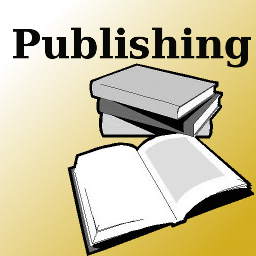 Yesterday, I left off with this phrase:
Yesterday, I left off with this phrase:
But while B&N is facing real problems – just like every other bookstore – I am skeptical that Amazon’s self-made superstars are going to make or break the deal. Those authors have been heavily promoted to Amazon customers.
Understand this: Amazon is the bookselling1 equivalent of WalMart.
Repeat that a few times. It’s important in understanding what’s going on now.
WalMart is known for a few things in particular: 2
- Requiring exclusive terms on deals from distributors.
- Requiring exclusive deals from distributors.
- Destroying competition, then changing the deal for customers.
- Blaming all of the above on other people.
These are all3 things that Amazon has either done – or attempted – in the last year or so. And just like WalMart, Amazon is the biggest game in town for small/independent booksellers. Alliteration Ink sells twice as many eBooks through Amazon as all other outlets combined.
Selling books4 has not been maximized through bookstores. More books move off of grocery store and department store shelves. And that means WalMart. If you can get in WalMart, you should get in WalMart. Likewise, if you can get in Amazon, you should get in Amazon.
This implies two things:
- KDP Select is still a bad idea for authors and publishers. It means you lose all other customers, for the chance of a gain… and giving the 500 pound gorilla even more stuff to pound you with later. Competition among booksellers is good for authors, just like competition between publishers is good for authors.
- This little spat about who puts which books on shelves isn’t going to change too much. Amazon isn’t (yet) one of the big publishers. Most of their superstars are in-house ones. They are the equivalent of the "George" line of clothes at WalMart. They’re a big deal … at WalMart. Not so much at Target.
I honestly don’t see #2 changing anytime soon, either. The big names – the ones that everyone knows – are either big enough that the Big Six are going to keep them handy, or are big enough to not need Amazon’s publishing services. They can hire someone like me to handle it for them – or start their own imprint.
The practical upshot? Authors and small publishers, don’t get locked in to exclusivity. Make them keep courting your business. Support the ability to convert formats of eBooks so that buying a device doesn’t make you dependent upon a specific store.
And when they offer you a convenient deal that’s a little too good to be true…
…watch for that other shoe dropping from the sky.
1 Arguably, more than just bookselling, but you get the idea.
2 We’re leaving the labor issues to the side for the moment.
3 Number 3 is arguable – I think it’s not clear-cut simply because they’ve not had the chance.
4 I mostly mean mass-market paperback types, but not just.
